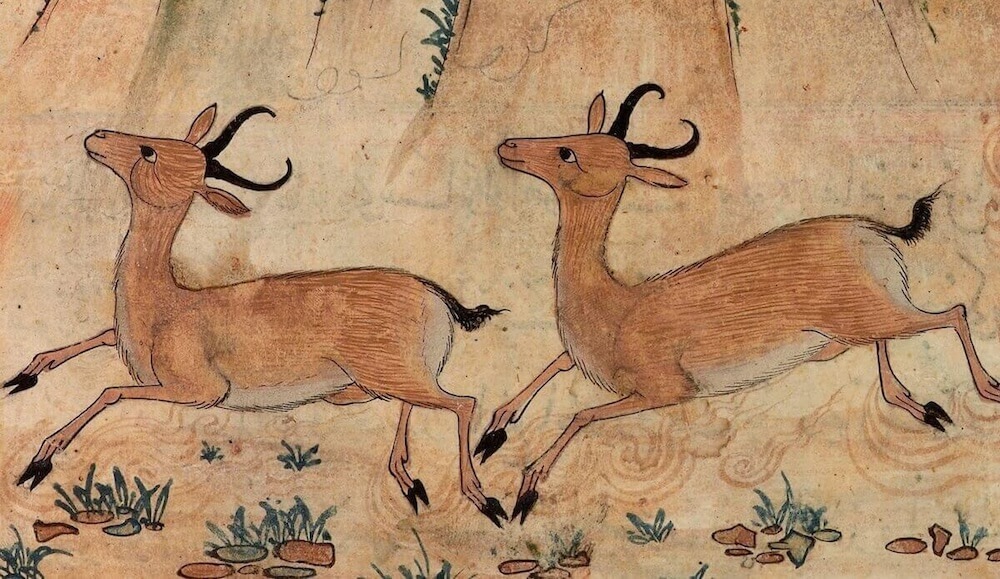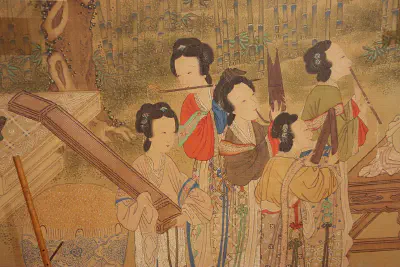If you like philosophical stories about shipwrecks, gazelles and stranded children — and, let’s be frank, who doesn’t — then you should check out Ibn Tufayl (c. 1109–1185). Ibn Tufayl was an older contemporary of the better-known Ibn Rushd (Averroes). He was born close to Granada under the Almohad caliphate, and he served as physician to the caliph.
Ibn Tufayl was a man of prodigious talents: he was a renowned court official, a theologian, an astronomer, a doctor, and a writer of a fascinating philosophical novel that has had a huge, but largely buried, influence on both philosophy and literature.
Ibn Tufayl’s best-known work is Hayy Ibn Yaqzan. It has been translated into English by Lenn Evan Goodman as Ibn Tufayl’s Hayy Ibn Yaqzan: A Philosophical Tale (University of Chicago Press 2015).
Ibn Tufayl’s novel tells the story of a boy brought up alone by a gazelle on an island somewhere near the equator. The boy, Hayy Ibn Yaqzan, studies the book of nature, and through the exercise of reason, comes to be a philosopher.
The story telescopes the evolution of human culture, knowledge and understanding into the compass of a single lifetime. And in spinning this yarn, Ibn Tufayl argues that we can come to an understanding of the world without revelation, prophecy or the intermediary of divinely-inspired books. It is enough to observe, explore, and reflect.

Ibn Tufayl’s book is both delightful to read (particularly in the earlier chapters) and fascinating. It was wildly popular in 17th and 18th century Europe: it is likely that Ibn Tufayl’s philosophical fable was part of the inspiration behind Robinson Crusoe.
I have always had a weakness for philosophers who spin stories (and for storytellers who spin philosophies). And this is one of those books that is worth reading not just because of the arguments it contains, but also because of the story it tells. Here, to give you a taste, is how he tells the story of Hayy’s adoptive mother’s death:
… finally death overtook her. All her movements and bodily functions came to a standstill. When the boy saw her in such a state, he was beside himself with grief. His soul seemed to overflow with sorrow. He tried to call her with the call she always answered, shouted as loud as he could, but saw not the faintest flicker of life. He peered into her eyes and ears, but no damage was apparent… He hoped to discover the place where she was hurt so he could take away the hurt and allow her to recover — but he could not even make a start; he was powerless.
Philosophical wunderkind that he is, for all his grief, Hayy is unsparing in his commitment to reason and to investigation. After the death of his adoptive mother, he puts his sorrow to one side, and he cuts her up in search of her soul. He doesn’t find it, so he concludes not, as one might expect, that there is no such thing as a soul, but instead that the soul is immaterial and outlasts death.
Notes
If you want to read more about this fascinating philosopher, there’s a brief article over at Aeon.
Image: Two Gazelles. From an Islamic manuscript c. 1290 CE. Public Domain via Google Art Project and the Morgan Library & Museum.



